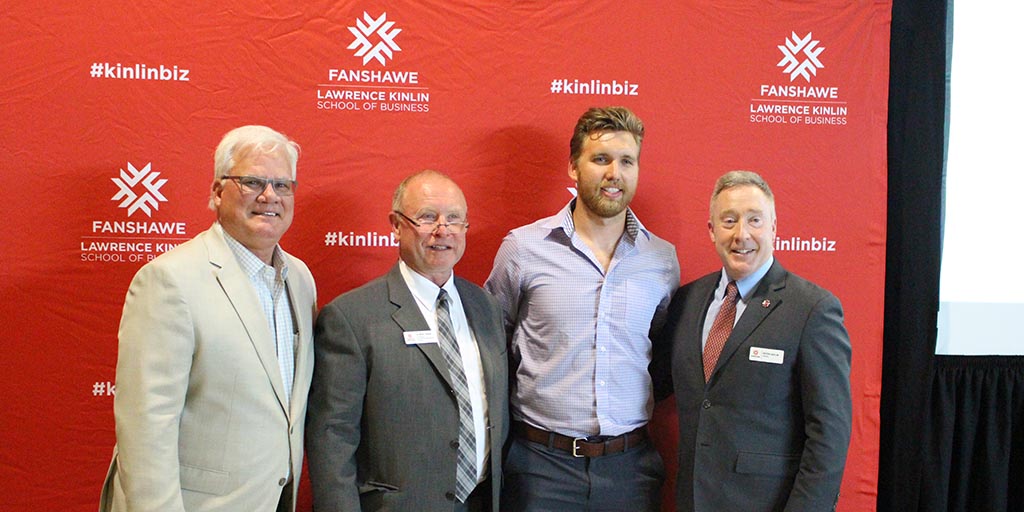Fanshawe launches new agri-business management graduate program
 CREDIT: JESSICA EDEN
CREDIT: JESSICA EDENWestern Fair District CEO Hugh Mitchell (far left), Albert Knab, co-ordinator of Fanshawe's agri-business management program (left) Mike Bakos, a graduate from the agri-business management program at Fanshawe's Simcoe/Norfolk regional campus (right) and Fanshawe president, Peter Devlin (far right), celebrate the launch of the college's one-year agri-business management graduate certificate located at the London campus.
Fanshawe celebrated the launch of its one-year agri-business management graduate certificate program on June 7.
The meeting took place at the Metroland Media Agriplex to announce the partnership between Fanshawe's Lawrence Kinlin School of Business and the Western Fair District and the opening of the program at the London campus in September 2017.
The program originally started at the Simcoe/Norkfolk regional campus and is open for enrollment at the London campus due to the demand of the program.
Mike Bakos, a graduate of the agri-business management program at Simcoe/Norfolk regional campus, said that he had a positive experience with the program.
“I thought the program provided a good foundation for future farmers and people looking to get involved in agriculture for their business and incorporating the kind of things that 21st century farming has,” Bakos said.
The program is currently open to applications and will be accepting 40 students in both the domestic and international category for the fall.
“The program is developed to teach people the entire agribusiness sector so it's not just about farming, it's about food, fibre, finance, food processing, distribution, as well as growing it,” Albert Knab, co-ordinator of the college's agri-business management program, said.
Classes will take place in the Western Fair District's Grandstand in the form of seminars, workshops, lectures and presentations.
Students will also have a six-week field placement in an agri-business environment to achieve a minimum of 240 placement hours. During their placement, students can assist with activities including operations, distribution, sales, service, quality control and other projects. �
Bakos said that his favourite part of the program was meeting community leaders and learning from their experience and the insight they provided including their struggles and their successes.
“I think there's a big need for agriculture-related jobs so with Fanshawe being a leader in the industry of education I think its great that they took it upon themselves to pick up the program. It's good that Fanshawe saw a need for people to escalate that business so they're providing a great niche for that market,” Bakos said.














